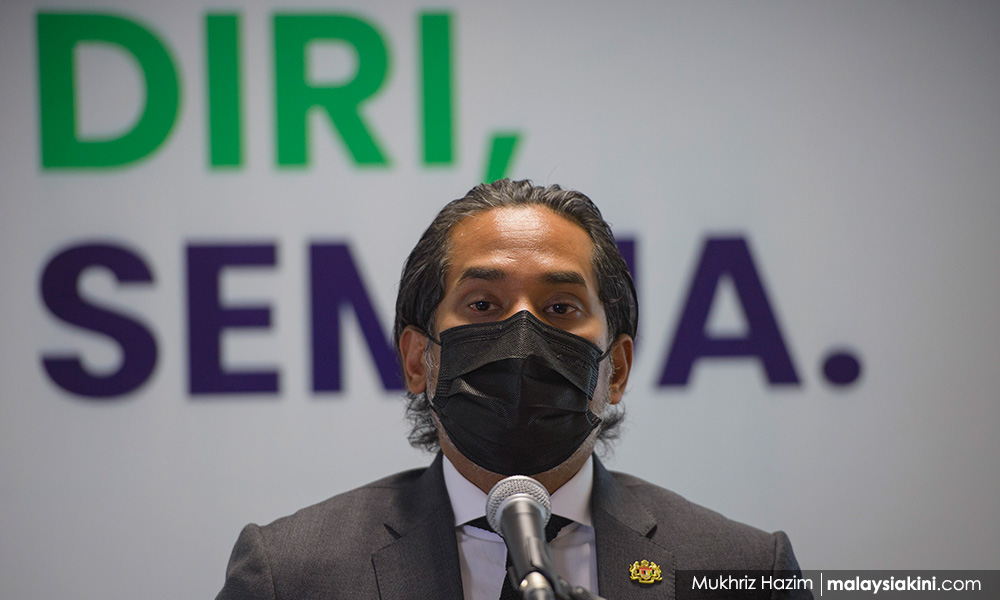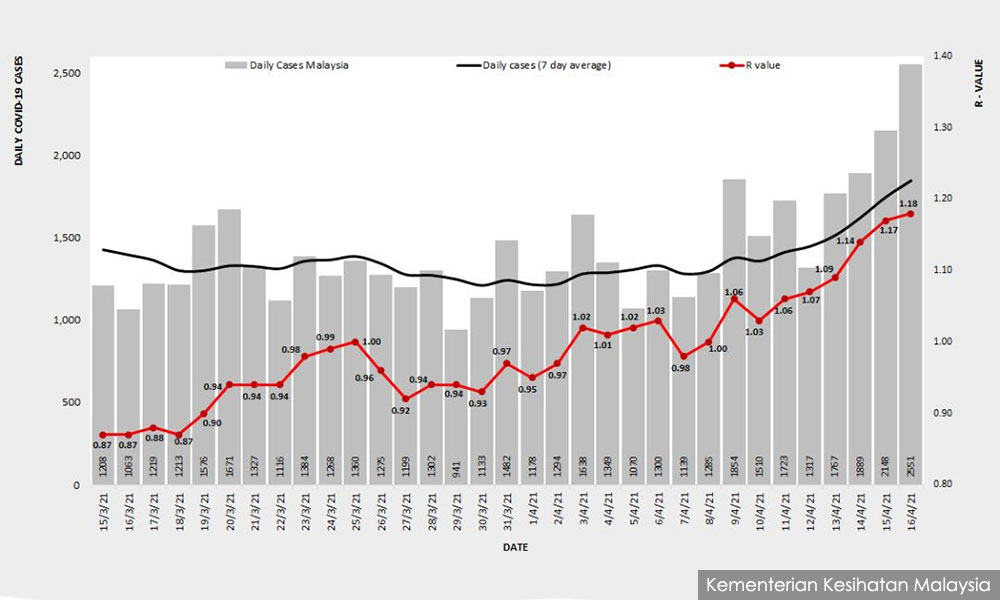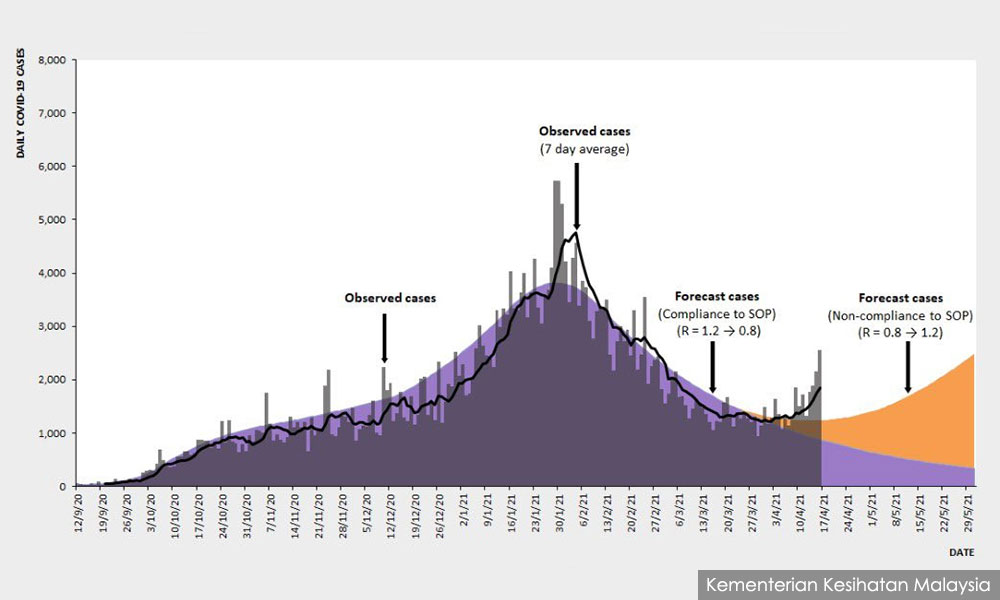Covid-19 infectivity in Malaysia has reached a new high this year as more people flock back to offices, schools, malls, bazaars, and other public venues than any other time during the pandemic.
This comes amid the slow rollout of the country’s vaccination programme that is hampered by limited vaccine supply and low registration rates.
According to today's figures from the Health Ministry, the disease’s effective reproduction number (Rt) yesterday was 1.18 – a new record for this year.
The figure means that for every 100 people infected with Covid-19, another 118 would be infected in the next round of disease transmission. Each cycle of Covid-19 transmission is believed to range between five to nine days.
An Rt above 1.00 indicates an exponential growth in cases especially if sustained above that number. Cases may grow slowly at first but will snowball rapidly.
The last time Rt was below 1.00 was April 7 where it was estimated to be 0.98, although this lasted only for one day.
For context, Malaysia recorded 12,921 confirmed Covid-19 cases in the past week, or an average of 1,846 cases per day.
When Malaysia brought back the movement control order (MCO) on Jan 11 and enacted a state of emergency, the country recorded 17,406 cases in the previous week (2,487 cases per day) and had an Rt of 1.11.
More people going out than ever
At that time, there were also more active cases (28,554 on Jan 11) due to a prolonged period of increasing caseload, which pushed the nation’s healthcare system to the brink of collapse.
When the situation improved, the government started loosening restrictions under its Covid-19 standard operating procedures (SOPs) even though the third wave of the outbreak has yet to fully subside, citing a need for the economy to keep running.
Most recently, Ramadan bazaars were also allowed to operate although complaints of overcrowding quickly streamed in. Housing and Local Government Minister Zuraida Kamaruddin pledged that the bazaars would be better organised next week.
Handphone tracking data also showed a greater amount of people are venturing out from their homes since February, with numbers now reaching pre-pandemic levels.
The Institute for Health Metrics and Evaluation at the University of Washington in the United States previously showed that mobility trends in Malaysia have reached two percent below pre-pandemic levels as of March 31.
It has since revised that estimate to 12 percent below pre-pandemic levels. However, the institute has now indicated that mobility trends in Malaysia have climbed back to pre-pandemic levels on April 7.
This is the highest level recorded since the MCO was introduced for the first time in Malaysia on March 18 last year.
Vaccine bottlenecks and variants of concern
At the same time, the progress of Malaysia’s Covid-19 vaccination program remains slow – bottlenecked by limited supplies for now and by a lack of registrations in the near future.
Only 687,176 people have received at least one dose of the vaccine as of yesterday, and another 438,220 have received both doses. This amounts to less than two percent of Malaysia’s population.
Another potential hurdle is the finding of 17 cases of the B.1.351 Covid-19 variant circulating in Malaysia. Thus far, these cases are confined to the Sepang and Kuala Langat districts of Selangor.
This variant is more transmissible than older Covid-19 strains, and is also somewhat resistant to antibodies induced by the current crop of Covid-19 vaccines.
The increased transmissibility and reduced vaccine efficacy mean that more people would need to be vaccinated to achieve herd immunity to curtail the spread of this new variant.

National Covid-19 Immunisation Programme coordinating minister Khairy Jamaluddin had urged the National Security Council to review the “flexibility” in its SOPs to ensure that this variant does not become widespread.
He reportedly expressed concern that once the variant spreads, some of Malaysia’s Covid-19 vaccines would become less effective and the rate of virus transmission would go up.
For the record - except for the AstraZeneca vaccine that is rendered virtually impotent - most of the other vaccines in Malaysia’s portfolio are expected to be still effective against B.1.351, but not as much as with older Covid-19 strains.
Malaysia has ordered 12.8 million doses of the AstraZeneca vaccine, enough to cover 20 percent of its population. - Mkini





No comments:
Post a Comment
Note: Only a member of this blog may post a comment.